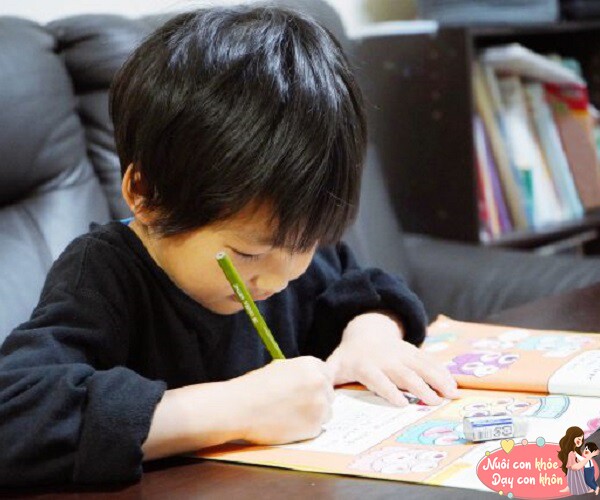“Even the smallest habits can have a profound impact on one’s life, slowly seeping in and altering one’s character, lifestyle, and thought patterns, ultimately influencing their destiny. As expert Yu Minhong famously said, ‘Life’s maturation is about turning habits into instincts. Repetition becomes habit, habit becomes nature, nature becomes character, and character becomes fate.’
It is essential to instill good habits in children from a young age, and parents with foresight should focus on these three habits, as they will shape their child’s destiny.

Good habits have a positive impact on a child’s life.

## Three Habits to Help Children Take Control of Their Lives:
### **1. Good Study Habits:**
As the saying goes, good habits lead to good grades. Good study habits enable children to focus and be more productive in their learning. They approach their classes with seriousness and promptly complete their homework.
The habits of reviewing and summarizing help children build their own knowledge systems, identify weak links, and excel in exams. Reading books enhance their knowledge, comprehension, summarizing skills, and logical thinking. Planning study habits teach children organization, goal-setting, and a sense of order.
Children with good study habits tend to be less anxious about grades and make steady progress. Even when they enter the workforce, they remain enthusiastic, proactive, and diligent. Good study habits profoundly impact personal learning effectiveness, long-term development, and character formation.

### **2. Healthy Lifestyle Habits:**
Healthy lifestyle habits contribute to physical health, independence, responsibility, and social skills. A reasonable diet, moderate exercise, and adequate sleep help children develop a robust body, essential for both learning and living.
Self-care abilities foster independence and confidence in children. When they learn to prepare meals, maintain personal hygiene, and manage their time, they become more self-reliant in facing life’s challenges.
Teaching children good manners, listening skills, and respect for others’ opinions helps them establish positive and lasting relationships. Children raised in a positive environment with healthy habits develop a love and appreciation for life.
### **3. Positive Thinking Habits:**
Good thinking habits improve cognitive abilities and problem-solving skills, enabling children to remain calm and resilient in the face of challenges. They develop independent ideas, creative thinking, and a deeper, broader perspective on life.
Positive thinking habits also enhance self-awareness and emotional control. Such children are more stable, rational, resilient, and emotionally secure.
They excel at personal growth, are confident and proactive, and attract like-minded individuals. Study habits determine maturity, lifestyle habits shape attitudes, and positive thinking influences the depth of children’s cognition. All three are indispensable.
Educator Yukichi Fukuzawa asserted, ‘The family is a school of habit, and parents are the best teachers.’

## What Should Parents Do to Instill Good Habits in Their Children?
### **1. Emphasize the Power of Role Modeling:**
An expert on Zhihu once asked: ‘What habits of your parents have influenced your life?’
A netizen replied, ‘For over a decade, my father has been adamant about waking up at 6:30 AM to read and energize himself. My mother, whenever she has free time, also immerses herself in a book. Every evening, my parents meet upstairs to play basketball outdoors or go for a run, always returning home with stories about the benefits of exercise.
I used to struggle with waking up early, feeling sleepy when reading, and lazy about exercising. But seeing my parents’ dedication inspired me to embrace early mornings. Now, working out has become a daily habit.’

Parents are a child’s first teachers, and their influence is subtle and profound. Children are more likely to develop good habits when they see their parents practicing them. For instance, if parents are avid readers, their children will likely share that passion, and if parents are sports enthusiasts, their children will be motivated to learn a sport.
Children often lack self-discipline, so they need their parents’ supervision and reminders during this process. When children misbehave, parents should promptly correct and guide them appropriately.
### **2. Focus on the Step-by-Step Training:**
Habits are not formed overnight but are the result of long-term accumulation. Every small action and decision subtly contribute to habit formation. Therefore, starting anew and gradual cultivation are key to developing good habits.
Break down large goals into smaller, more achievable ones to help children experience success and build confidence. For instance, if a child wants to develop a reading habit, start with five minutes of reading each day. Gradually increase the difficulty and complexity as they progress.

Whenever a small goal is achieved, reward your child. Reflect together on what is working well and what needs improvement. Habit formation is a dynamic process that requires continuous adjustment and optimization.
Once a habit is established, it becomes an internal motivator, driving children to keep moving forward.”
The Ancient’s Wisdom: 3 Keys to Raising Successful and Virtuous Children
As a parent, it is imperative to lead by example by first eliminating any bad habits. Do not underestimate the awareness of children, as the old adage goes, “start teaching your children good morals from a young age”. This is indeed the best time for parents to educate their children to become virtuous and respectful individuals.





































